The Ministry of Foreign Affairs is currently advising against traveling to Russia.
Bolgar is the destination of a trip we from Kazan in Russia Companies. We quickly leave the Kazan Arena and the Kazan Kremlin behind. What a contrast! The journey through the Republic of Tatarstan takes two hours on well-developed roads. It is about two hundred kilometers from Kazan to Bolgar. If Kazan is a big city with all imaginable amenities, our drive to Bolgar takes us through flat country.
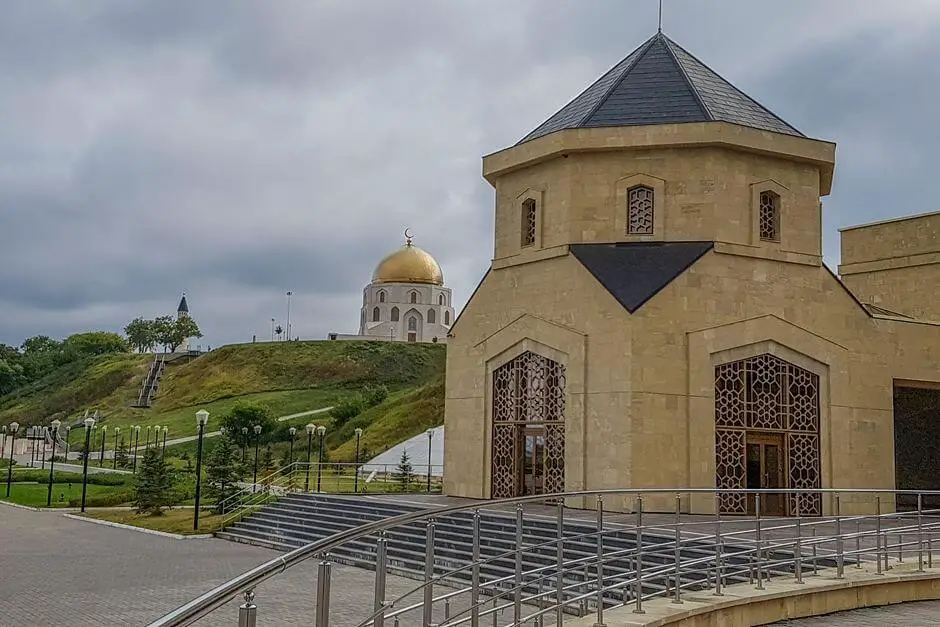
Let's go to Bolgar on the Volga
It is quiet in the countryside in Tatarstan. Kazan is far away. Less geographically, as far as the way of life is concerned. Larger places we search in vain along our route. Only a few rest stops and villages interrupt the view into the wide landscape. From time to time we catch a glimpse of the Volga in the distance.
That's how it lives in the countryside in Tatarstan
Instead of big cities we pass small villages. In these, time seems to stand still. There are hardly any people on the dusty village streets. If we have seen the restored Tatar quarter in Kazan, we expect rustic farmhouses here. However, hardly any young people live there. Coincidentally, we meet an old woman instead on a muddy village street. Her back is bent. You can tell she has worked hard all her life. With a colorful headscarf and wrapped in warm clothes she shuffles along the street. She's just coming back from field work. She smiles warmly at us and greets us in Russian.
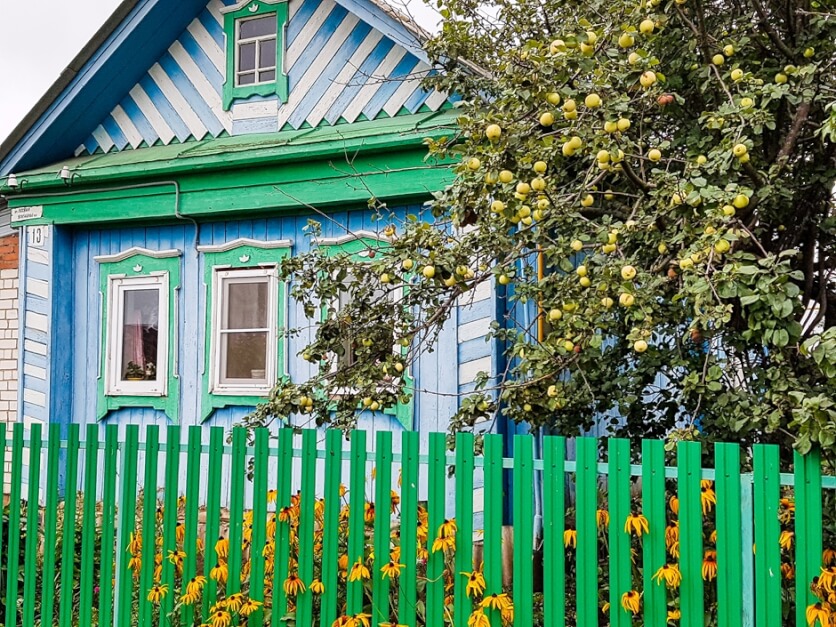
Unfortunately we do not understand what she says. Therefore, we try to make ourselves understood with hands and gestures. She nods understandingly, and as our German-speaking companion approaches, she tells us what her life in the country looks like. She used to live in Kazan. Since she received her pension, she could no longer afford life there. The villages are now retreats for retirees, to whom life in the city is too expensive. In her village she is instead improving her pension with harvesting work in the agricultural producer community. In return, she receives feed for her animals and, if she is lucky, some money. A hard life, we mean. She laughs, however, and says she is satisfied. With a friendly smile, she says goodbye to us.
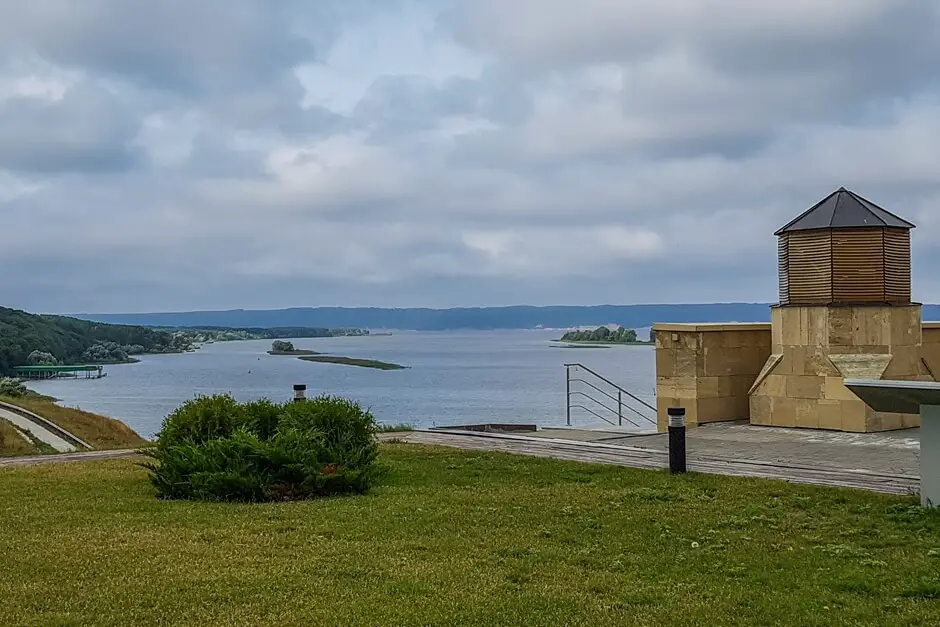
We continue our journey to Bolgar in Tatarstan.
Welcome with bread & salt and Tschak Tschak
At first we only see a flat building on the banks of the Volga. In the distance, towering towers and buildings with golden domes. And a few kilometers away, we finally discover a mosque. In between, there are still numerous buildings under the earth, which are still being excavated. The wind blows violently over the wide landscape. He drives the clouds over us in quick succession. The flat building eventually turns out to be a museum whose exhibition halls extend down several floors. In front of the entrance two young women in traditional costumes await us. With bread and salt and with chak chak (a sweet pastry) they welcome us in Russian and Tatar style. At first a little bashful, but then more and more courageously we break bread from the offered loaf, dip it in salt and enjoy it.
Then we take the lift down to the bank of the river. This is where the river cruise ships that run along the Volga River make their start. Their passengers can then walk up through the museum as soon as they arrive, gathering information about the history of this city and its inhabitants.
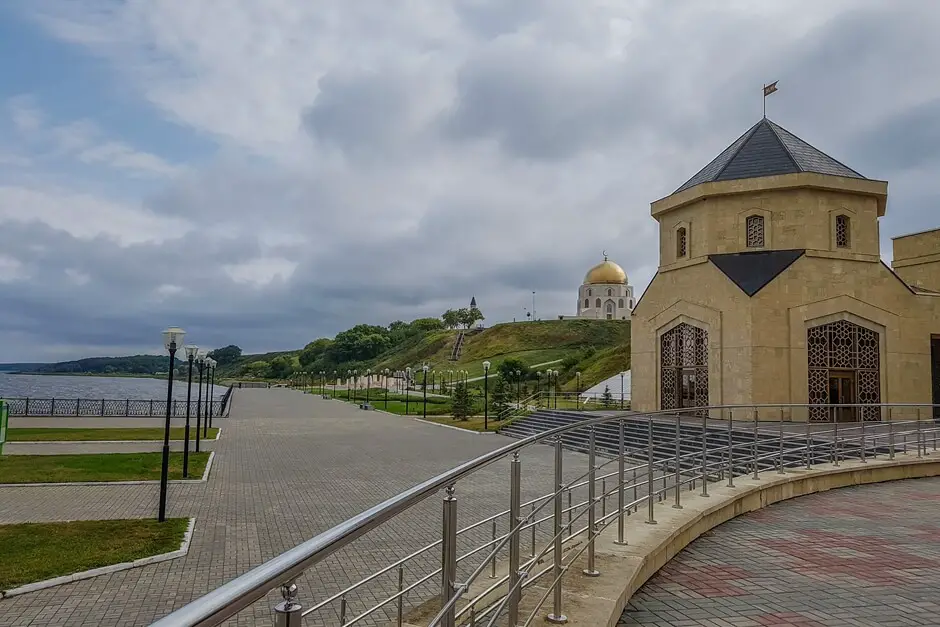
Who were the Volga Bulgarians?
The Volga Bulgarians are Turkic people living between the 7. and 10. From the south from Bulgaria immigrated to the region. Despite constant incursions by Russian peoples, their empire existed until the 13. Century. They established themselves as important trading partners, above all in trade with Arab peoples. After the Mongol invasion, their culture continued in the Golden Horde and Khanate Kazan.
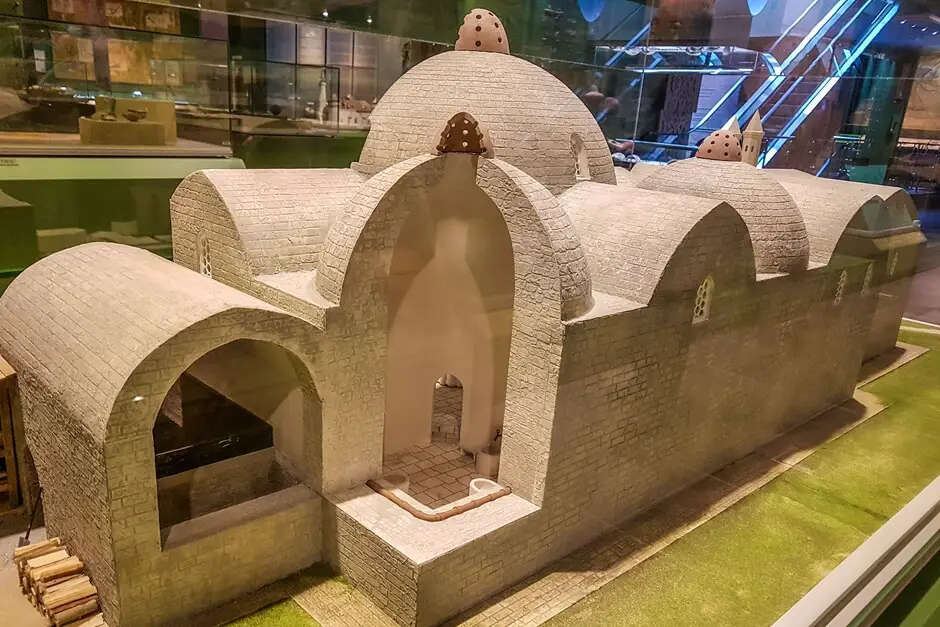
The museum shows how the Volga Bulgarians lived and acted. Glorious armor armor shows that they were a respectable equestrian folk. One also learns how they converted to Islam under the influence of their trade contacts. There were other cities, including Kazan. Although they operated mainly in the southern regions of arable farming, they traded in the 10. Century into their solid houses in the summer against tents.
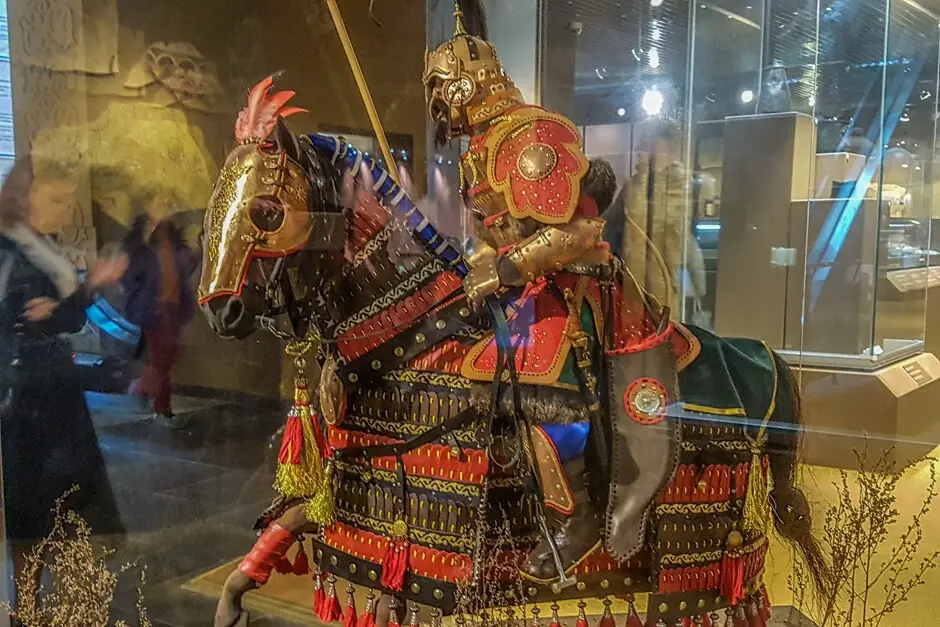
From the 12. Century came it again and again to arguments with Russians. At the same time, the Mongol empire grew stronger, until Batu Khan eventually destroyed Bolgar and went to war with his riders against the Russians. In the course of these developments, the kingdom of the Volga Bulgarians in the Mongol Empire went on. At the time of the Golden Horde, the region recovered again. Above all, noble Mongols settled in Bolgar. The place experienced its heyday only under the Golden Horde. Today, the Chuvash and the Kazan Tartars call themselves descendants of the Volga Bulgarians.
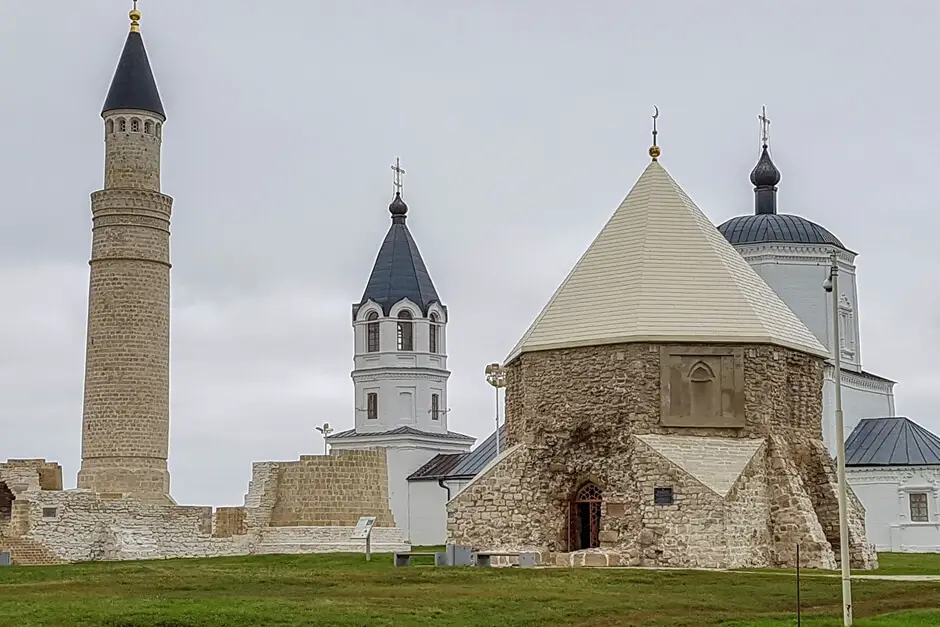
Bolgar in Tatarstan is more than an archaeological and historical complex
Since 2014, the historical and archeological part of Bolgar is a UNESCO World Heritage Site. Only small parts of the city have been excavated. The archaeologists are constantly working on the site. Bolgar is not only interesting because of his excavations. The place offers even more sights that are more recent. Here you can see how religion is developing in Tatarstan. Islam is strengthened after a long repression. You can see it in modern buildings in Bolgar.
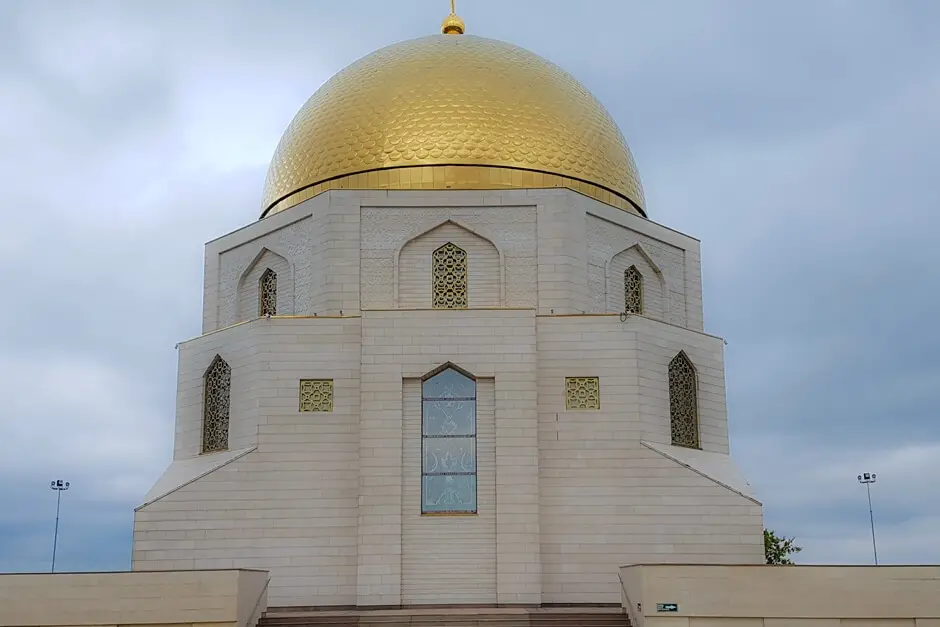
This includes
the Koran shrine
It contains the largest Koran in the world. He recalls that Bolgar was the place where the Islamization of Tatarstan began. With his 1,5 meters 2 meters and 800 kg he is a remarkable work. It requires several men to turn pages of this Koran.
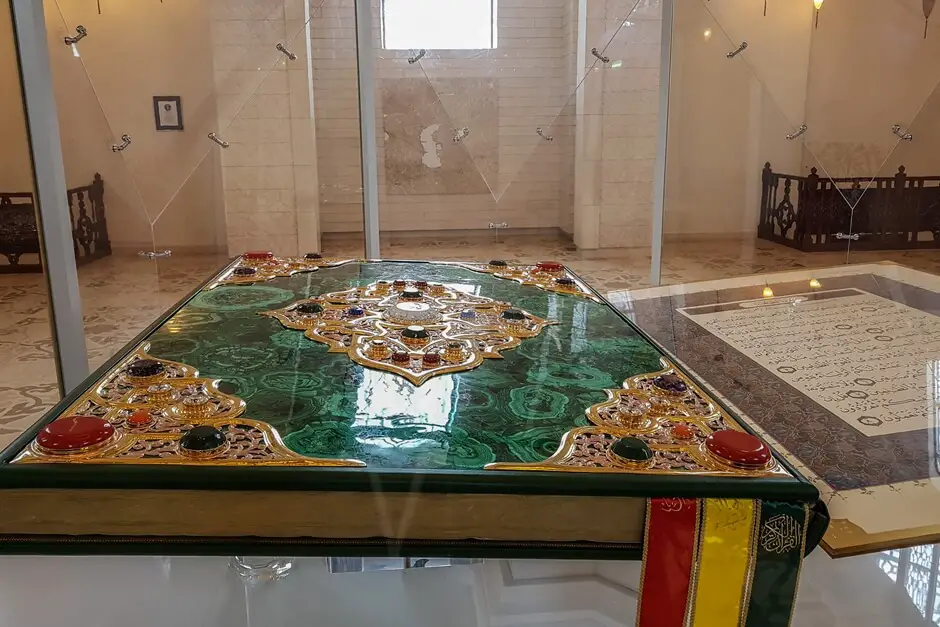
The White Mosque
Also new is the White Mosque. It was said to have been erected on the site where the early Mosque of the Volga Bulgars once stood. It is definitely worth seeing. With her white minarets and the pond in front of her, she involuntarily recalls the Taj Mahal. Visitor buses queue in front of the mosque. Inside, we take off our shoes, and I put on one of the obligatory headscarves. Women are not allowed to enter the prayer room without headgear.
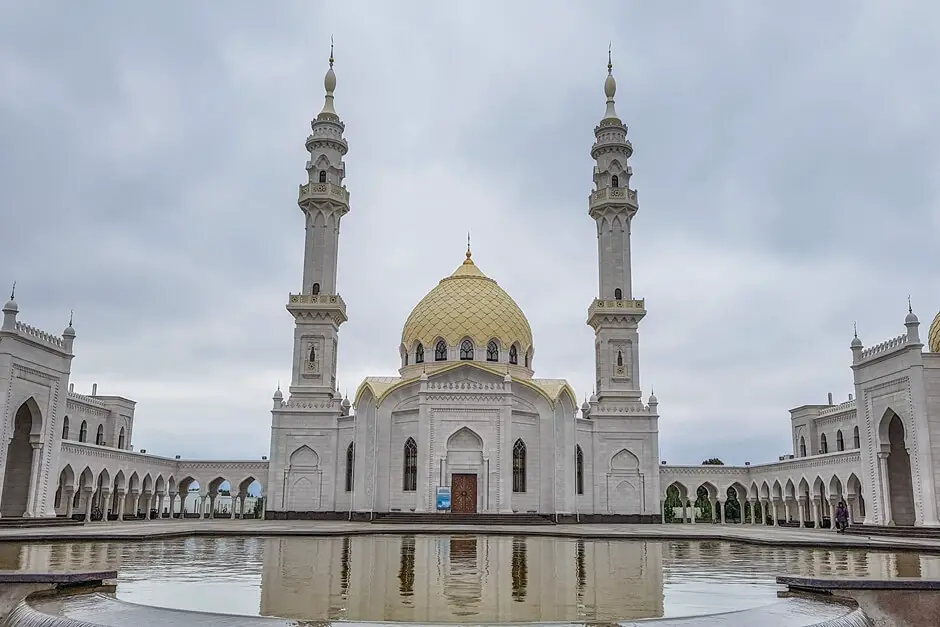
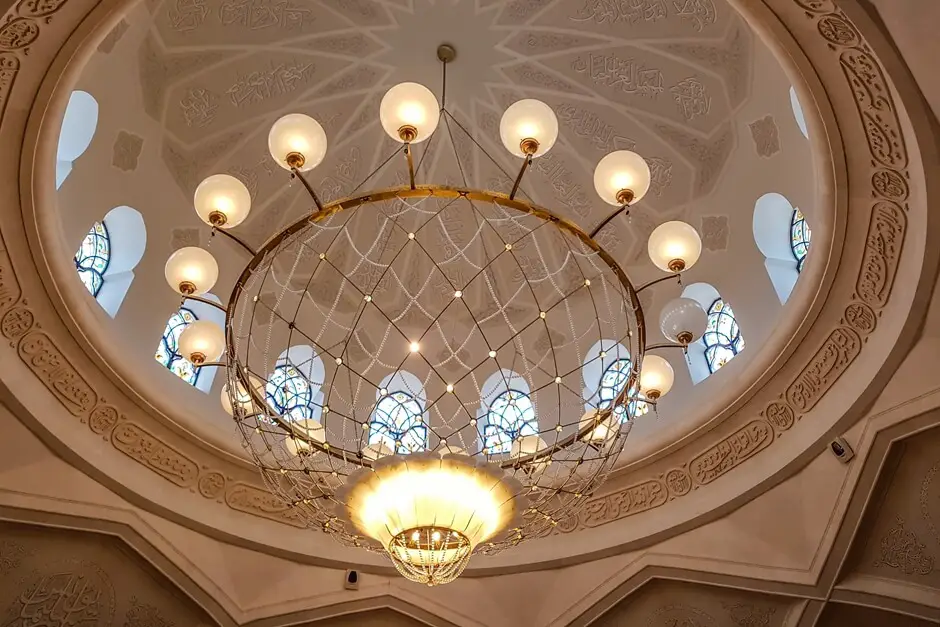
Similar to the Kul Sharif mosque in Kazan, these two Islamic structures are being built in places where Islam had long disappeared. A sign of a moment of peaceful coexistence of these two religions over the centuries.
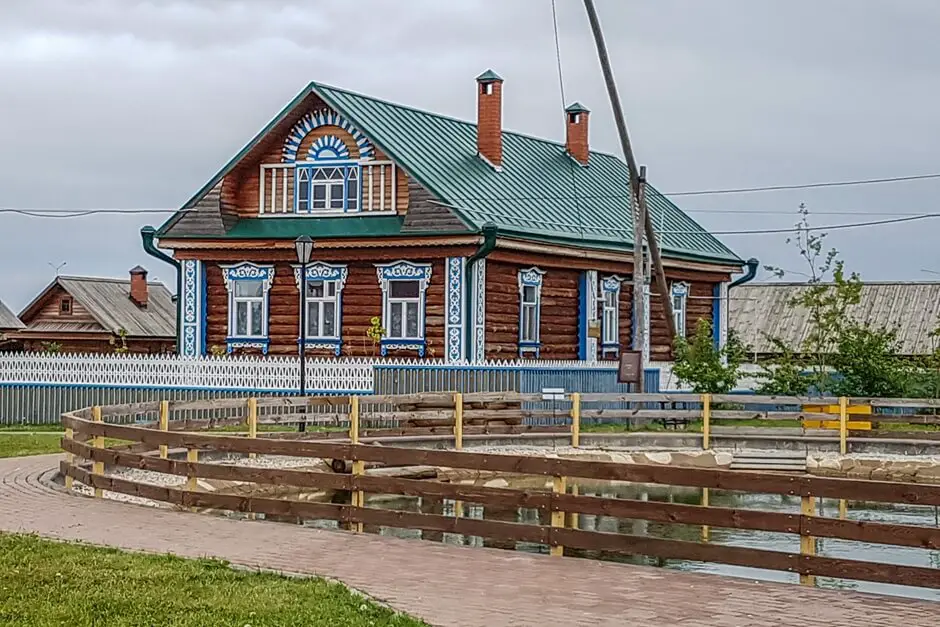
Tatar Museum Village
Next to it is a Tatar museum village with a historic mill. In addition, we find again the colorfully decorated wooden houses of the Tatars, which we already know from Kazan and from the villages on the way. In the main building of the museum village there is also the only restaurant in the museum area of Bolgar. If you do not have a picnic with you, this is the place to have lunch.
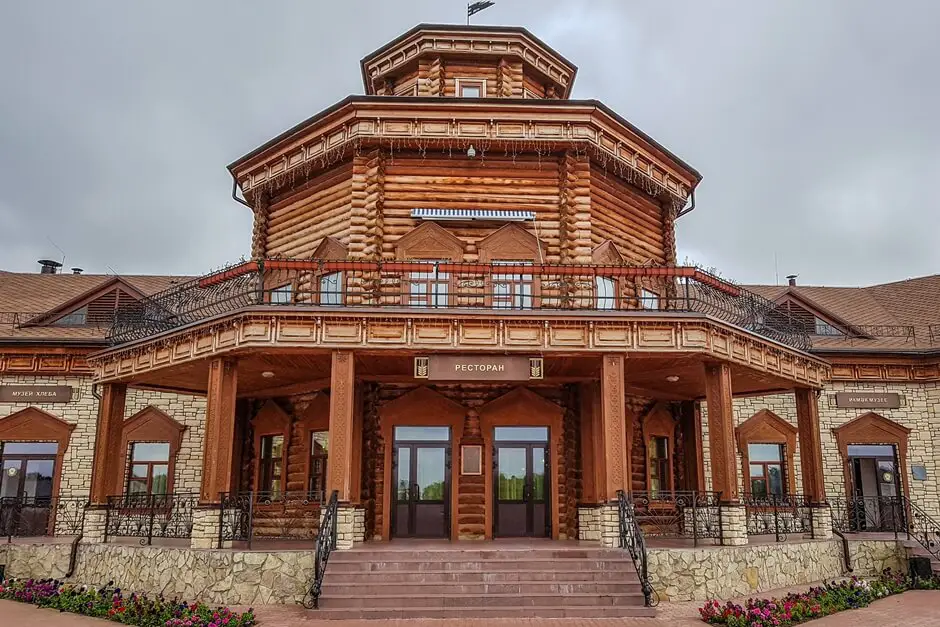
Bolgar is definitely worth a visit for visitors of Tatarstan. It shows how the various ethnic groups have mixed together. And it gives a good insight into the current situation concerning the Tatarstan religion between Christians and Muslims.
Discover Kazan and the surrounding area
Source for the article Bolgar - capital of the Volga Bulgarians and UNESCO World Heritage: research on site.
We would like to thank Visit Tatarstan for inviting us to this trip. However, our opinion remains our own.
Text: © Copyright Monika Fuchs, TravelWorldOnline
Photos © Copyright Monika Fuchs, TravelWorldOnline
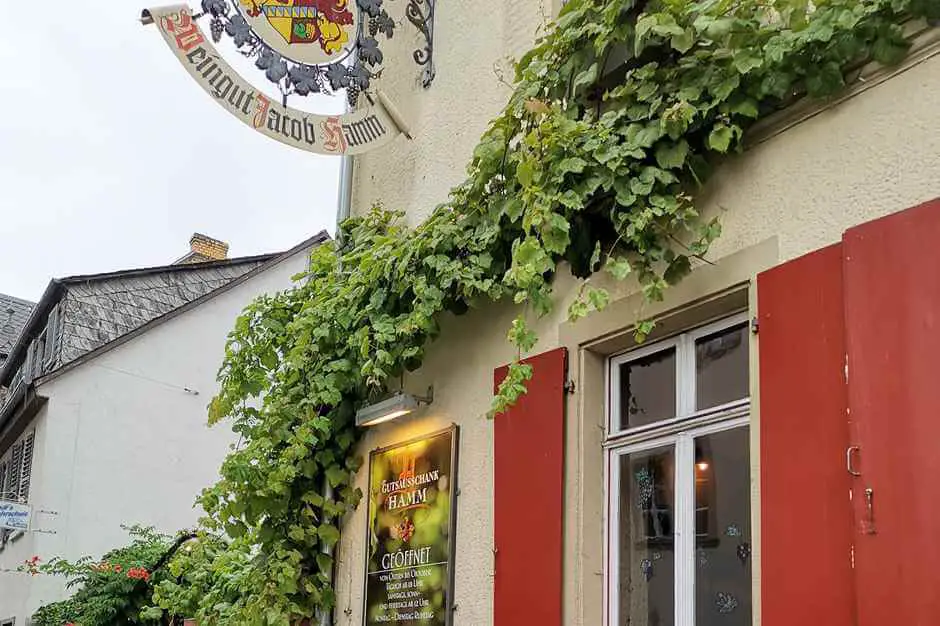
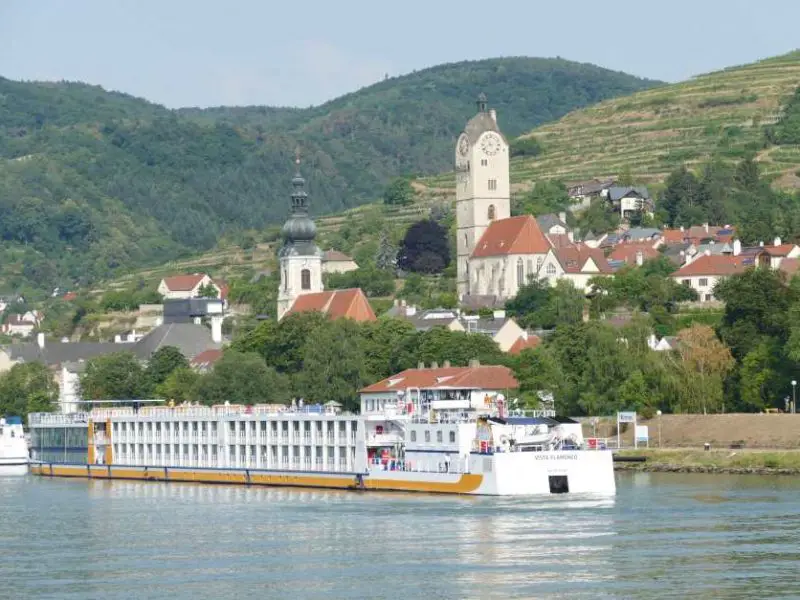
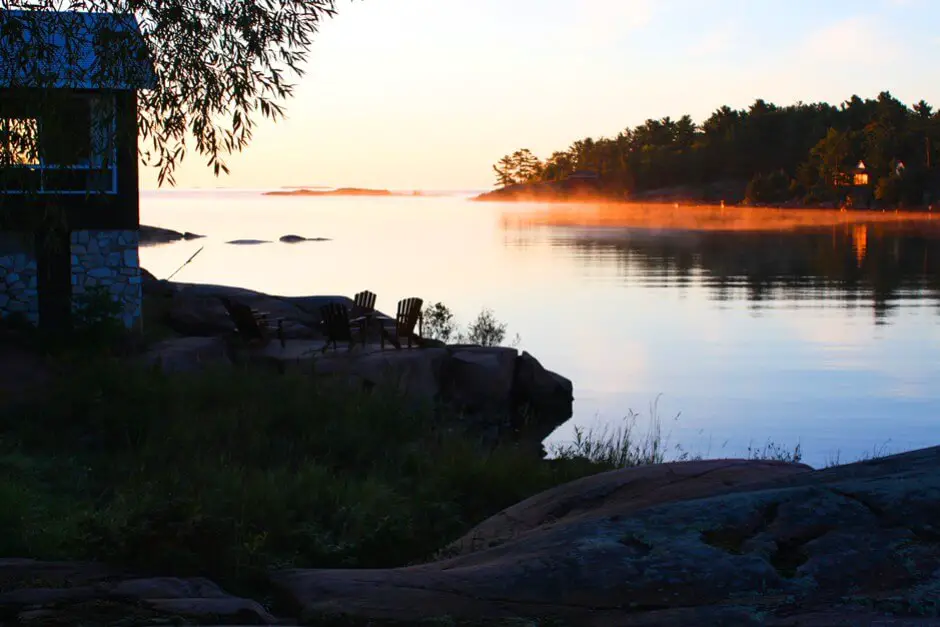
Hello Monika and Petar,
The journey sounds very exciting and informative. I like your report very well, because the historical aspects are always included and you get a better feeling. I particularly like the historic buildings with the decor. I hope to read some of these reports with you;)
Best regards, Kuno
Hello Kuno,
Thank you for your nice comment. Such reports are certainly more, because that's the way we like to travel. Have fun on our blog.
Best regards,
Monika
Dear Monika, dear Peter,
I love reading your reports. You also made a very interesting trip here. In the days when I discovered Dostoevsky and Pushkin and devoured them, I always wanted to go to Russia. So far I still haven't realized it. But your report on Tatarstan awakened the urge at that time to explore this country. The white mosque is actually somewhat similar to the Taj Mahal.
Best regards, Selda.
Dear Selda,
That was our first trip to Russia. Tatarstan impressed and made us curious about other regions in this huge country. We would like to get to know more of them. There's certainly more to discover.
Best regards,
Monika
Hello Monika & Petar,
Bolgar - another place that I hardly knew about before. Along the Volga there are some interesting places with rich history. At some point I look at the maybe the rotten way with a river cruise. Life on rivers already has something.
It is also violent that the elderly return to the small towns and villages because they can not afford life in the cities. That was certainly an interesting experience in Tatarstan.
Best regards,
Barbara
Hello Barbara,
it was very interesting to learn about the peoples of this region. Here you hardly know anything about them, neither about their past nor their life today. That's why a trip there is such an exciting experience.
Best regards,
Monika
Thanks for the wonderful impressions!
I wish you a beautiful Sunday!
With pleasure. Thank you very much for your comment, dear Jenny. Also you have a nice Sunday.